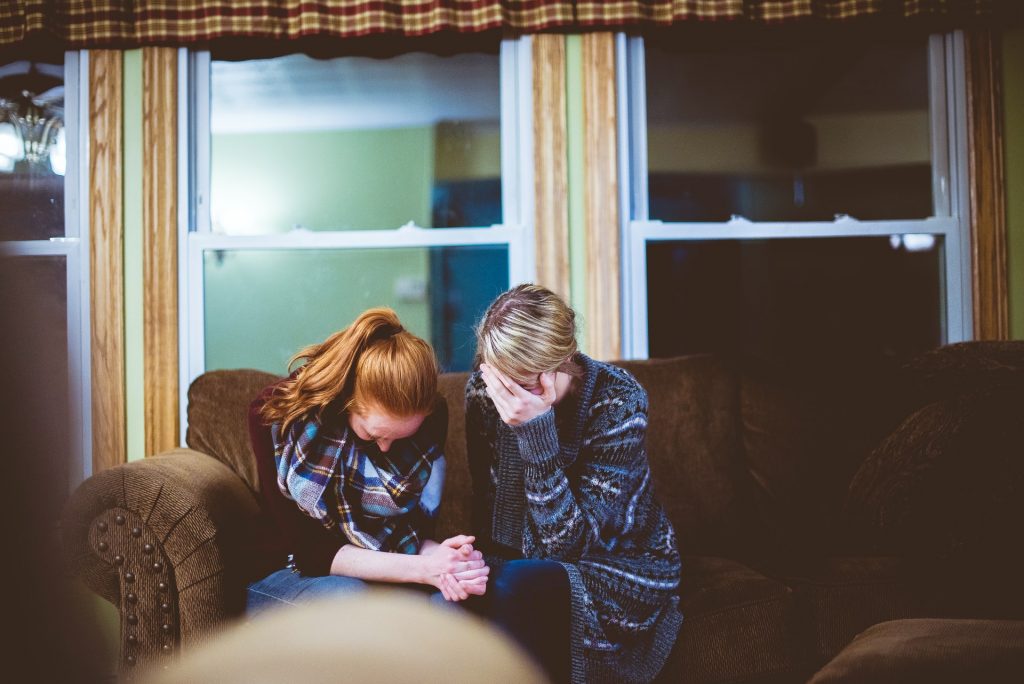Coping with Grief and Loss
by Kat Rowe | May 17, 2021
How to Cope with Grief and Loss
For most people, grief is one of the most challenging experiences they would need to overcome. Grief is preceded by a significant loss. It usually involves losing someone you love, someone close or very special. The intensity of the grief that follows usually varies as there are different types of loss, too. For example, the impact of losing a parent would be different from discovering that your pet is gone.
Missing a loved one or the sense of having lost someone or something so important – such as a spouse after a divorce, a parent, child or friend succumbing to an illness, or a home to a fire accident – can be devastating. The grief that follows is usually characterised by sorrow or intense sadness, mixed with feelings of denial, disbelief, numbness and even anger.
Grief as an individual experience
While you’re there, feeling lost in that lonely, dark place, you feel an intense desire to escape as the gloom and seemingly unending tears drain you emotionally. Nothing and no one can comfort you. You hear the words of sympathy, hope and encouragement, but you do not feel them. Sometimes, you feel like you’re drowning in a sea of sorrow and anger, and again, you wish to escape.
But like most things, you cannot and should not force grief out of your life. It’s a journey you must take whilst focusing on the healing that follows. As you grieve, it’s important not to compare your experience with that of others as people cope with grief differently, and the time it takes to heal varies from person to person.
How grief can impact mental health

When you are grieving, you can get consumed by your sorrow over the loss of life or relationship you once had. This could make focusing on work or your daily routine more difficult. You might be washing the dishes and not realise the water running as you stop and stare into space and momentarily forget where you are.
Sometimes, you might feel like you no longer care about the things you were once passionate about, like charity work, your career, giving friends advice, spirituality or health. If you are a parent, the feeling of numbness can make you seem indifferent to the everyday frustrations your child might be experiencing in school.
But even when the effects of grief may seem a lot like depression, it’s important to remember that you must feel and acknowledge it before you can move forward.
Others find it helpful to exercise, whilst there are also those who immerse themselves in volunteer work or simply go away on a holiday.
Crying and talking with friends or family help some people, whilst others prefer to keep quiet or record their thoughts in a journal or share their painful experiences in a blog.
Whichever way you choose to deal with grief, what’s important is that it helps you heal. Just remember that this difficult episode in your life, too, shall pass, and you will experience peace and happiness again.
Strategies for managing grief
Although grief may appear to be insurmountable initially, there are strategies and resources for grief and loss that you can use to help you manage better and heal as time goes by.

- Talk about your feelings with supportive people, such as friends and family.
- Join a support group for people undergoing similar experiences.
- Keep yourself healthy through proper nutrition, exercise and getting enough sleep.
- Reduce your load and ask for help – whether it’s work or household chores.
- Indulge in your hobbies or do something that brings you joy.
- Find ways to remember the happy times and celebrate the life of the person (or pet) you lost.
If your grief turns to despair or doesn’t seem to ease over time, or if your sense of desolation starts to interfere with your health and overall functioning as a person, it’s important to seek professional help.
You are not alone
When you experience a devastating loss and are overwhelmed with grief, it’s important to remember that you are not alone. There are people who love you and are ready to listen and help.
At Stride, we provide a supportive environment for adults coping with life issues so they get on the road to recovery.
If you need help dealing with grief and loss, please contact us.
Other Blog posts
- It’s Time to Focus on Men’s Mental Health
- What is Depression?
- How a Great Night’s Sleep Can Benefit Your Mental Health

